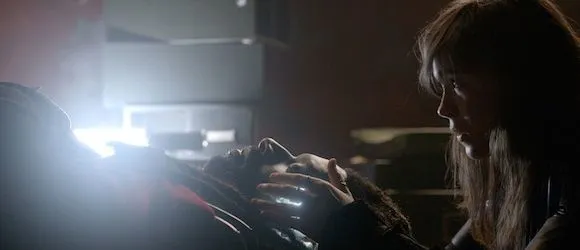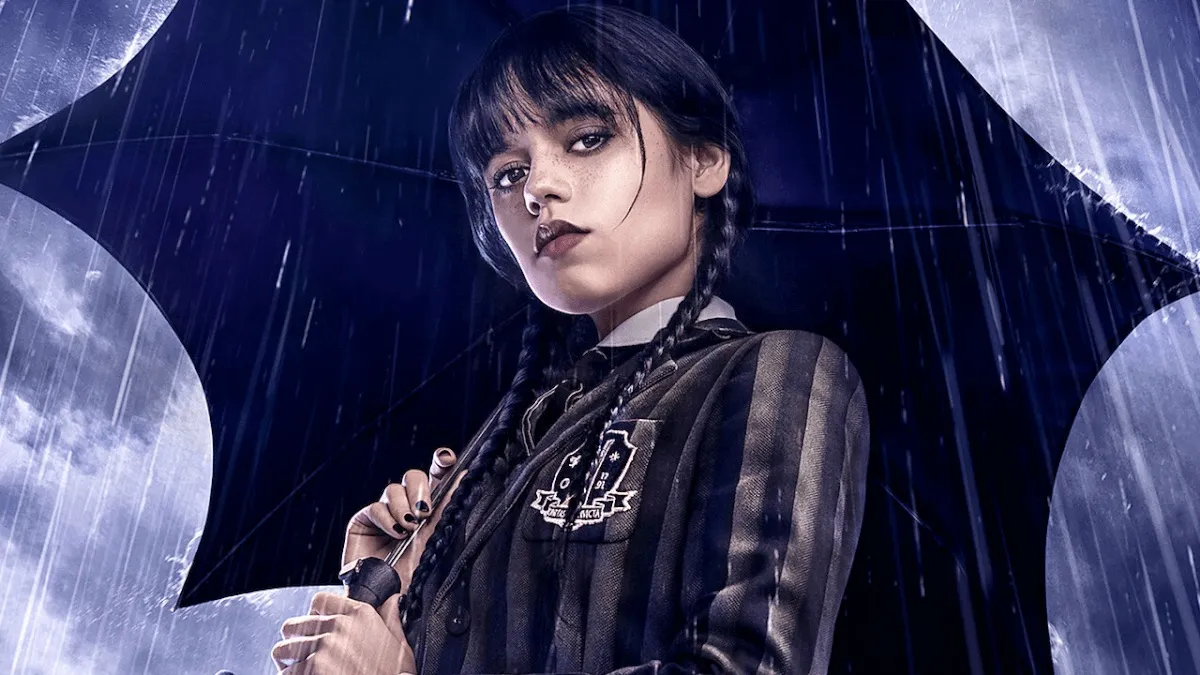I don’t like time travel. Excusing the excuse that it’s a big ball of wibbly-wobbly timey-wimey stuff, most Hollywood time travel consists of altering linear timelines to forestall mistakes, death, and apocalyptic disaster. At its best, it comes across as the screenwriting equivalent of a neat parlor trick, at its worst it’s sloppy, plot-hole-filled writing that has to use sci-fi mumbo-jumbo to cover its own tracks. But the latest time-jumping saga to hit the silver screen — X-Men: Days of Future Past — made pretty good on its promises with one major wrinkle; the film itself is an alternative timeline to what happened in the comics, for a not-so-mysterious reason. That reason is Ms. Shadowcat herself, Kitty Pryde, who, instead of being the time-traveling agent of change, acts as the supercharged battery that sends Wolverine back.
Though we’ll get into the details below, a canon shift of this magnitude in book-to-film adaptation would normally inspire internet outrage, essays about the changes, and hot debate between fans. Instead, it seems that only a corner of the fan world—the one directly concerned with issues of female representation—has spoken up in opposition. Considering the canonical fanaticism that followed the introduction of a female character to The Hobbit films, you might think it strange to see such a dearth of dissent. Unless what we’re really looking at is the same thing in reverse, another classic case of – everyone say it with me now — Hollywood sexism.
To solve this mystery to our satisfaction, let’s do a touch of time traveling ourselves; to 1981, when the original Days of Future Past was published in the Uncanny X-Men series. Desperate to avert the dystopian future of 2013 where every last mutant was either placed in an internment camp or outright murdered, Kate, née Kitty, Pryde transferred her consciousness into her younger, 1983 self. There, she rallied the old X-Men to prevent the assassination of Senator Robert Kelly, an act that had led to mass anti-mutant hysteria. This arc is one of the most famous in X-Men history, and helped established the popularity of the series under writer Chris Claremont. Seems like a plum story for convergence to film, so why the character switch?
Before spinning off into conspiracy theory, we should address some of the more reasonable explanations for this change. Perhaps unsurprisingly, a lot of them have to do with money and logistics. Kitty, thus far, had not been established as a main character in the X-franchise. In fact, her only other major appearance, where she was also portrayed by Ellen Page, was in the X-film we’ve all dedicated energy to pretending never happened. To that end, Ms. Page’s increased stardom in the interim means she would potentially be less available to take on a major role. Then there’s the sheer fact of Wolverine’s popularity as a character and fan expectation that the movie will center around him as a major player: these films have not been so much about the X-Men, after all, as they have been about Wolverine. Finally, there’s the funk caused by the timeline being between the not-so-distant-future from 2014, where Kitty is still a young woman, and the 1970s, when she wasn’t born yet.
Sounds about right. But I’m still calling a foul. Kitty’s lack of popularity is not a fault of her character, but a fault of the writers, who have focused their energies again and again on the walking trope of a tough guy that is our dear Logan. Falling back on Wolverine yet again is a mixture of kowtowing to audience familiarity and plain old writing laziness touched with sexism. Screenwriters are told to do the same thing, but different, and not to stray too far from the path, lest audiences get left behind, leaving their cash behind, too. It’s not that they couldn’t take the time to introduce a new main character; it’s that they didn’t want to, especially if it’s a woman, one they speculate will lose them ticketbuyers on that critical opening weekend.
Finally, there’s that timeline issue, one that wouldn’t be a problem if producers weren’t trying to link the two franchise casts together. I complain about sci-fi mumbo-jumbo, but it, of course, has its own advantages, namely that you can do pretty much whatever you want in a story, so long as there’s a reasonably plausible explanation attached with some fancy science-sounding phrases. Who’s to say that a traveler has to inhabit their younger body? In a similar vein, why does it have to strain the mind to the point of breaking, meaning that only a mutant who can self-heal, as Wolverine can, is capable of making the trip? These are not concrete facts, but changeable pieces of fiction, written in so that we don’t question why a woman is being virtually written out.
Kitty’s displacement is symptomatic of the lack of female representation in action films. There is very literally no reason why, with a bit of finagling, she could not have been the one to convince a younger Professor X of the terrible, imminent future. Wolverine does nothing physically that Kitty herself could not have found a way out of, or wouldn’t even have had to deal with given different writing. Who else would have loved to have seen Kitty, as a future student of Xavier’s, restore his hope in all the good he will one day accomplish? But in Bryan Singer’s estimation of the X-Men, characters are defined by their powers, and, consequentially how powerful they are in the physical realm, not who they are emotionally. Wolverine’s ill-suited manner for the task is played for laughs, when a character sincerely able to address the matter may have been just as, if not more, effective.
Absence of protest in the face of a woman’s part being diminished is, sadly, no surprise. But there’s also been no outcry at Kitty’s absence from the meat of the action because no one misses a character they hardly know. This didn’t have to be the case. Make us care about her, and she could have been the central focus of the film, with all the action necessary to carry it off as a summer blockbuster. The idea that audiences couldn’t have related to her is an excuse among many that prevents characters like her from being able to take the reins. That’s all they are, though; excuses based on fear. The fear of losing money, the fear that a film won’t be successful if a woman is the main character, the one with, in this case, the most agency. However, again and again at the box office, we see that women can not only carry films, but can do so to great effect. Just think of X2, a blockbuster mega hit where Jean Grey and Storm had more screen time than even Mystique, the most featured woman in the film, does here. There’s so much more to the X-Men than Wolverine and background characters with flashy powers and few lines. For a socially conscious cluster of heroes, letting women take the main lead is one battle they’ve yet to fight.
Zoe Chevat is a writer, animator, and illustrator who attended the CalArts MFA Program in Film and Animation. In addition to writing for The Mary Sue, she also contributes to Bitch Magazine Online. She comes from New Jersey and lives in Los Angeles, and, after many years, still finds that second part incredibly strange. Follow her on Twitter @zchevat, or on Tumblr at http://justchevat.tumblr.com









Published: May 26, 2014 01:57 pm